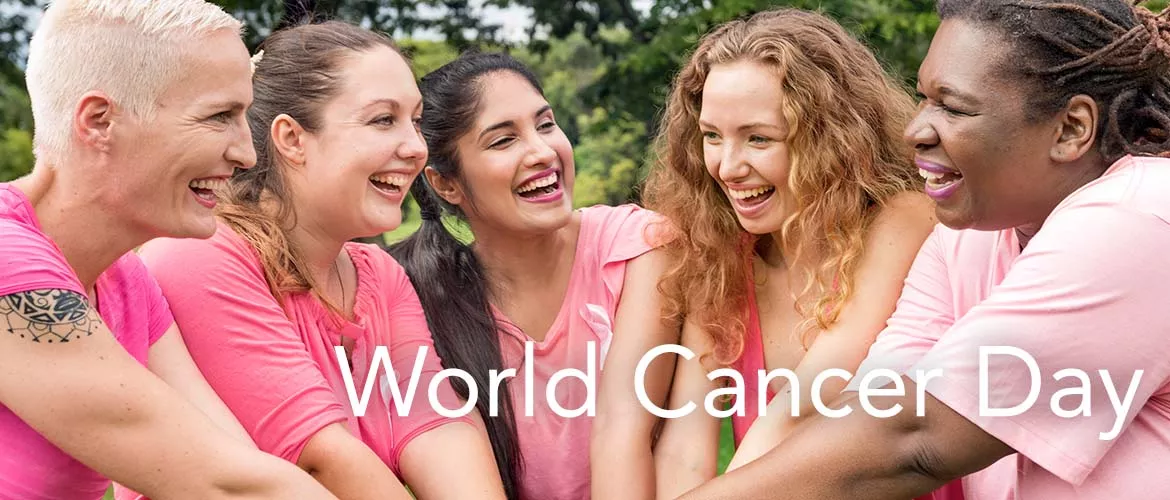World Cancer Day 2022

Half of the world’s population do not have access to essential healthcare. Despite the incredible achievements in cancer diagnosis and treatment, many people struggle to receive basic cancer care.
This year’s theme for World Cancer Day is ‘Close the Care Gap’. It’s about solving the equity gap that affects everyone, in all countries. While inequity is more apparent in low- and middle-income countries, even well-resourced countries struggle with wide gaps in cancer care.
What does the term ‘inequity’ mean?
In healthcare, inequity is the “unjust, avoidable differences in care or outcomes.” This differs from the term inequality, which refers to unequal distribution of resources. We won’t be able to close the cancer care gap just by providing everyone with equal resources. Equity is providing solutions to solve everyone’s unique needs to bring them up to the same level.
To get an idea of how inequity affects people around the world, or people you may know, here are some facts and figures:
• For white women in the US, the five-year survival rate for cervical cancer is 71%. For black women, the rate is just 58%.
• In New Zealand, Māori are twice as likely to die from cancer as non-Māori.
• Childhood cancer survival rates are over 80% in high-income countries but as low as 20% in low-income countries.
• More than 90% of cervical cancer mortality occurs in low- and middle-income countries
• Due in part to discrimination from healthcare practitioners, cancer screening among transgender people is lower than in the rest of the population
• Cancer kills nearly 10 million people a year and some 70% of those are aged 65 or older, yet older populations face disproportionate barriers to effective treatment.
• There are notable differences in cancer-related outcomes for rural and nonrural patients, even in high-income settings such as the US.
What is RMDM doing to help?
Early cancer screening should be available to everyone, regardless of where they live or who they are. Our early cancer detection blood test, PanTum Detect, is a quick and accurate solution to give everyone access to early screening for cancer. PanTum Detect uses a technology that is affordable for public healthcare, like the NHS, to make available in primary care practices.
We actively help educate people about cancer prevention, cancer symptoms and encourage regular cancer screening when available.
Ideally, we want the NHS to provide PanTum Detect at a routine check-up. Until we achieve that goal, we are partnering with labs and clinics that have the facilities to run the test. Paying privately for any type of healthcare is a luxury, but we are working to make the test more cost-efficient and as affordable as possible.
We will be looking to partner with labs across the UK to better serve those in more rural areas, or unable to travel.
Studies have shown cancer rates in the Middle East are rising and early cancer screening is a necessity. Currently, RMDM is discussing opportunities to conduct further studies with PanTum Detect in Egypt, Jordan, and the UAE. We hope to see PanTum Detect made available in cancer charity hospitals in the UAE such as the Hamdan Bin Rashid Cancer Charity Hospital and others.
What does an equitable world look like?
“We will achieve health equity when every person has the opportunity to reach their full health potential without barriers or limitations created by social position or other socially determined circumstances” – World Cancer Day 2022
Together we can move towards a better future by raising awareness and pressuring governments to address the root causes of these inequities. Please visit the World Cancer Day website to learn more about taking action in your community.
If you would like to partner with RMDM or find out more about PanTum Detect, please get in touch via our contact form.
Resources
- https://www.worldcancerday.org/close-care-gap
- https://rmdm.group/diagnostics/pantum-detect/
- https://applications.emro.who.int/emhj/v26/06/10203397202606638640-eng.pdf?ua=1&ua=1